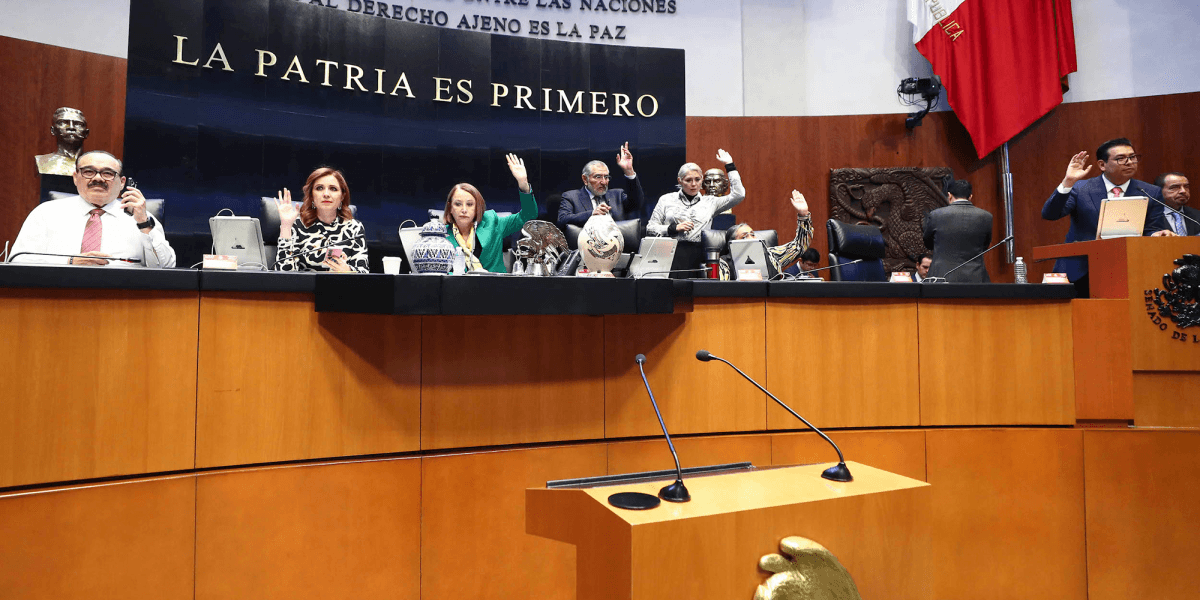Chaos as a form of government

While public funds are being given away, disguised as social support, public institutions are being destroyed.
Around 30 million people benefit from the various programs that give away money collected from taxpayers who actually generate those resources.
Without a doubt, those who receive this "gifted" money are happy, regardless of what the government says, does, or fails to do, whether in matters of public safety, civil protection, or any other responsibility of the State.
In September of this year, nearly 7 out of 10 women considered living in their city unsafe, and about 6 out of 10 men felt the same. And in certain areas of the country, that figure rises to nearly 9 out of 10.
Unfortunately, the security crisis has many more facets that contribute to the chaos, for example, the number of people who believe that public institutions are colluding with crime, the attack on social leaders, whether they are the mothers searching for their missing children, agricultural leaders, among others.
In the context of insecurity, a reform of the justice system was promoted to dismiss thousands of ministers, magistrates and judges, both from the federal and state jurisdictions.
Rather than restoring public trust in the justice system, the objective was to seize control of an institution that resolved cases with a degree of independence. Despite this, independence was the very essence of that power.
Without control of federal or state public security institutions, the progress, however small, that thousands of public servants in the judicial branch had achieved to become part of the judicial career was thrown overboard.
As we could see from the results of the last election, all that was needed was to guarantee loyalty to the party in power in order to join the ranks of judges who would be elected regardless of their professional training.
Some grotesque cases of lack of knowledge or inexperience among the elected judges have already begun to emerge, but the biggest blow was to institutional credibility and the chaos that ensued in the administration of justice.
Something similar will happen with the electoral reform being promoted without the participation of political parties. Never before in the history of recent political and electoral reforms has the opposition been marginalized to such a degree…of course, until the arrival of someone who was supposedly once in opposition and now has no tolerance for those who dissent from the ruling party.
Most of the proposals put forward so far aim to further restrict electoral expression for those who voice and represent opposition to the government. These include reducing or eliminating the number of representatives and senators who do not represent the electoral majority, or abolishing political immunity, which originated in the courageous opposition of those who paid with their lives, like Belisario Domínguez, for opposing dictatorships. It seems that this name is now only used to award medals in the Senate.
A few weeks ago we witnessed thousands of our compatriots becoming victims of two tragedies: one of them due to meteorological phenomena that, while on the one hand the authorities can do little to prevent it, it is also condemnable that they have done nothing to mitigate the impact, such as informing, as far as possible, in a timely manner about the phenomenon, preventing irregular settlements, and strengthening civil protection systems.
In that context, the second tragedy is the response by the State, which continues to be insufficient and ineffective in addressing the avoidable suffering caused by these types of phenomena.
The aid needs to reach the people who need it more effectively and with the timeliness that the crisis demands.
The chaos that exists every time these natural phenomena occur is evident due to the dismantling of public institutions for civil protection and humanitarian aid in the face of disasters.
Eleconomista





